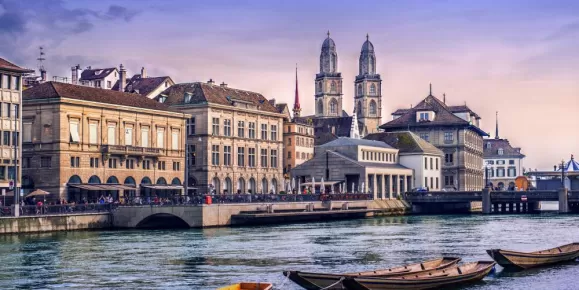The Valley of the romantic Rhine, the Moselle and the Main
Strasbourg Roundtrip - 7 Day Itinerary aboard MS Gérard Schmitter
- Cruise Iffezheim & Gambsheim locks
- Enjoy Strasbourg at night
- Visit the unique Reichsburg Castle
- Join an exclusive wine tasting
- Activity Level
- Variable
Explore the enchanting cities of Strasbourg, Frankfurt, Cochem, Koblenz, Rudesheim and Mannheim on this 7-day river cruise aboard the MS Gérard Schmitter. As you travel the Rhine, Moselle, and Main rivers, you'll have the chance to tour ancient towns, bike through verdant valleys, savor the local wines, and explore castles.





























